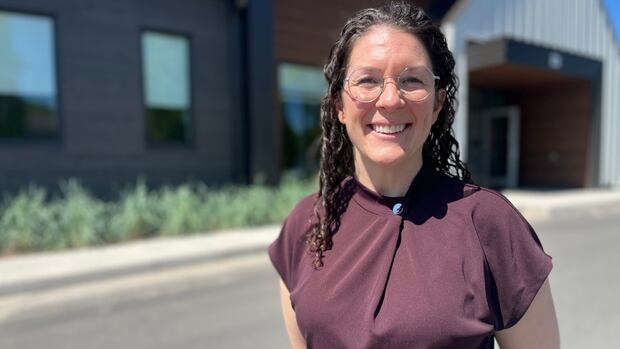
Quebec medical doctors say that the brand new invoice will take away them, the affected person’s achieve can be threatened
Doctors at a medical clinic, a city in Central Quebec, Kings Falls, say that they are considering closing their clinic and getting out of family practice – or Quebec entirely – if a bill allows the province to regulate the province to regulate how doctors are paid, it is written.
Bill 106, earlier this month, in an attempt to get more patients to get them will be connected up to 25 percent for their performance for their performance.
But in a statement posted on his social media, doctors at the Kings Falls Medical Clinic stated that the new rules would implement unattainable performance goals on them and reduce their ability to provide quality care to patients.
Dr. who works in the clinic. Isabel Lamice said, “We cannot take more patients if we do not have more resources or a system that is more efficient and productive who is able to take good care of them,” Dr. Isabel Lamice said, who works in the clinic.
As the legislative hearing on the bill runs his syllabus, the province’s clinic and others are warning their patients that they risk losing their family doctor – despite suggesting otherwise despite Article 4 of the bill – and asking them to write their local MNA. The clinic has since removed its statement and letter template from its Facebook page.
The Quebec College of Physician (CMQ) condemned this type of communication after Health Minister Christian Dubey faced about him during Tuesday hearing.
“They broadcast false information,” it is written in the college president Mauril Goudralt Statement to Facebook,
In the hall of the National Assembly on Thursday morning, Dubey said that the college did the right thing by adding that “what is important of the patients.”
But as a debate, doctors continued to voice their concerns, echoing by some CMQ about the impact of the bill.
The Gaudreault argues the bill and its title-clearly clarify the government’s efforts to put the burden of a well-working health care system on the shoulders of an act-doctors to establish the accountability of doctors in relation to collective responsibility and improvement in medical services.
Consultation for Bill 106 is underway, including a plan to link up to 25 percent of doctors remuneration for performance indicators. But some doctors say that they will leave the profession until the proposed law is amended.
What the bill changes – and what can be its blind spots
The bill proposes a mixed model of remuneration for family doctors: caption payment (an annual flat rate based on the level of vulnerability of the patient per patient), a per hour rate for the time spent with patients and a fee-service-service.
A part of their salary will also be associated with their collective performance based on the targets set at the provincial and local levels.
Those goals have not been specified in the bill, but the waiting time and absence rates may seem like reducing the quality of care, Dubey said at a Tuesday hearing, said, the goals will need to be discussed to add the goals.
Chairman of Fédération des médecins omnipraticiens du québec ,
Dr. Mark-Andre Amayot said, “We should stop evaluating the work of family doctors on the basis of their clinical appointments as we are neglecting a full low-term section of their work.”
He addressed the committee with a pair of family doctors, who said that the new rules would punish the doctors whose colleagues have chosen less work for mental health reasons or whose charge has been reduced by the Cu woulde Insurance Board (RAMQ) compensation system.
“I work full -time throughout the year, but Ramak feels that I barely work for four months,” Dr. Benoite Hepel told the committee studying Bill 106, stating that the training, administrative work or teaching spent hours has not been taken into consideration.
Four medical schools in the province addressed the committee on Wednesday, increasing a similar point. Bill, they say, do not recognize doctors to spend the time with students during their training – 80 percent of which are in clinics and hospitals.
They also want the government to pay more to doctors for that training and take measures to prevent new doctors from leaving Quebec.
Happle said that the government’s goals need to be bound by the promise of more resources.
Currently, there are 1.5 million cubes who do not have family doctors, according to Dubey. “It’s not about working hard, it’s about working in a different way,” he told FMOQ.
Dinabrek Montreal8:04What do people studying public health think about Bill 106
Bill 106 is being heard in Quebec City this week. The bill will allow the province to regulate how doctors are paid. Health Minister Christian Dubey says that the goal is to take more patients for doctors. But will it work? Nadia is an assistant professor at the School of Public Health at Sorial Universit De Montreal. He co-written a memoir which will be presented at the hearing tonight.
For Roxane Borgès Da Silva, Université de Montreal’s School of Public Health is a professor, shift in Capitation Pay. She says that it encourages more cooperation and delegation between doctors and other health care professionals and removes the incentive to reach high amounts of appointments for doctors.
For example, under the proposed model, a physician will not lose compensation for an appointment if a patient is treated by a nurse or physiotherapist registered by them.
Determining the display goals can help combat the shift away from productivity, Da Silva said, but they need to be “right” and should be for all health care personnel and not only the bills as doctors.
